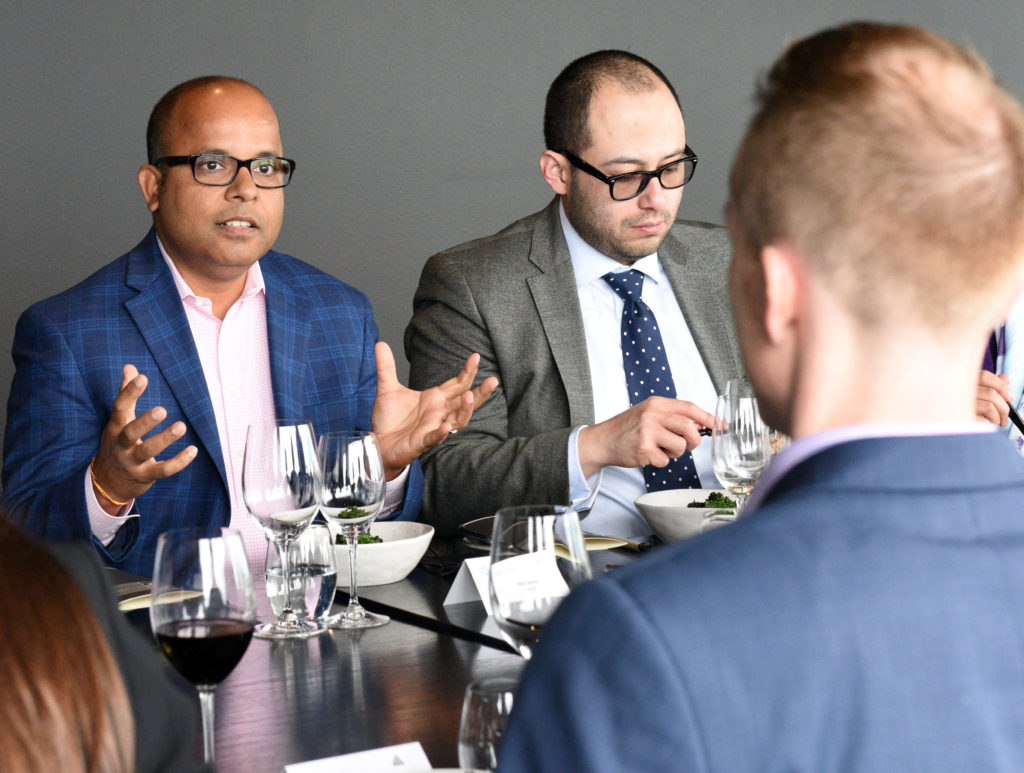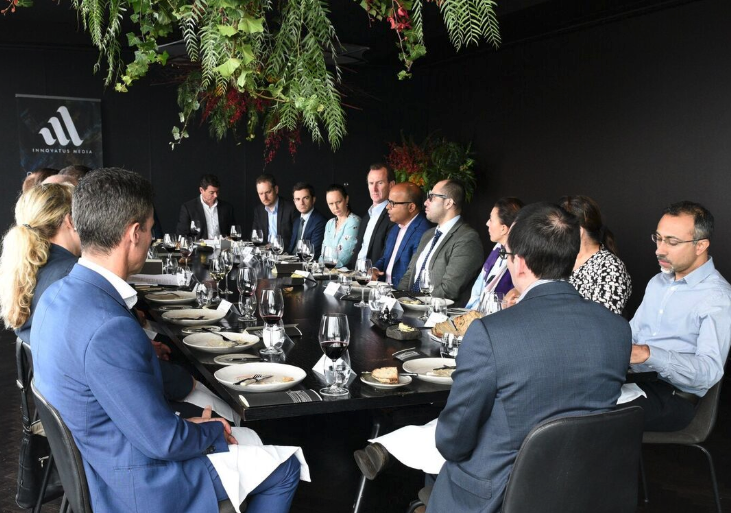Orchestrating the Right Culture Behind the Right Technology
Bipul Sinha is the CEO of Rubrik, one of the world’s fastest-growing enterprise technology companies. Throughout his career, he has…
Bipul Sinha is the CEO of Rubrik, one of the world’s fastest-growing enterprise technology companies.
Throughout his career, he has been a trailblazer in identifying new ideas. One of the early investors in Twitter, as well as being a key player in the creation of the market making hyper-convergence tool Nutanix, he has an understanding about the requirements of enterprise technology and a vision for their application.
However, Bipul believes that there is one element to enterprise innovation that is overlooked, culture. He believes having the right culture surrounded by best of breed technology is what creates real change.
Bipul was the guest of honour last month in Melbourne for a CIO transformation luncheon which explored these key themes. Entitled “Orchestrating the Right Culture Behind the Right Technology”, the session gave 12 of Melbourne’s leading CIOs the opportunity to connect with a global innovation leader and hear insights into the role of culture in driving real innovation.
Working at Velocity
Rubrik is a software-defined platform that unifies backup, instant recovery, replication, search, analytics, archival, compliance, and copy data management in one secure fabric across the data centre and cloud.

Launched in 2014 and currently valued at $1.3 billion, the company has received US$300 million in funding. In order to grow at this rate, Bipul says the group has taken an agile approach to business that concentrates on speed and scale.
“I am a venture capitalist at heart and have a belief that the capital given to this part of the market is quite expensive. When money is given to you to go a create something, it has to be fast and good from day one,” Bipul noted.
For Rubrik to grow at the trajectory it is, Bipul explained that the group works at a speed which will look to support large amounts of growth. He calls this working at “velocity”.
“When we started selling our products, we didn’t start selling in America, but we started worldwide. Our first sale actually came from Australia.”
“When we got the sale our CFO said, ‘how are we going to support this customer with fifteen staff based in San Francisco?’.”
“I said ‘if we can’t support this customer we can’t support this company’. That is the approach we have taken from the onset which has been kind of unique.
“A new organisation and new business have to learn how to react and respond. Being responsive has been within Rubrik’s genes from day one.”
Growing at speed and scale comes with its own challenges, to counteract this Bipul outlined how sometimes working from the end-point can result in the right outcome:
“I am a fan of reverse timelines. If you look at any business, small or big, one of the risks that you have is the execution risk. To really create a systematic programme and go fast, you really need to look at where you want to be. It is all about building a reverse timeline, every single thing we do has a reverse timeline.”
Bipul believed reverse timelines challenge you to consider how your time is best spent and to think about what someone could have been doing as opposed to what they are or have already done.
Building a Radical Culture
Innovation cannot work in a siloed nature. To think differently, everyone has to be bought in on the change and future application of new ideas.
To encourage this thinking, Bipul explained that Rubrik takes a “radical transparency” approach internally with its staff. Radical transparency in practise means that all staff actively participate in board meetings, and beyond personal employee information and salaries, nothing is off limits.
“Investors balked at the idea of radical transparency. When I started Rubrik, I always wanted to create an all-inclusive company, one where every employee understands the goals of the business.”
Bipul denotes this perspective of wanting to do things differently from his past. Growing up in India and eventually moving to the US, Bipul always felt like an “outsider”. When he had the opportunity to create a culture from the ground up, he was sure it should be one that did not isolate employees.
“I am not used to communicating in a board meeting with 1300 people worldwide listening to the whole boardroom discussion. Sometimes the discussions are quite colourful, but it keeps everyone accountable.”
Having the Right Mind-Set
Innovation is also an attitude. It is about understanding that things can be better than what they are now for your customer and exploring how to achieve that change. The right approach is something that Rubrik sees as critical in both culture and execution.
“When I start a board meeting I talk about the six top problems that I am facing. We never talk about the happy things; we talk about the challenges. Happy things don’t fix the problems, discussing the challenges do.”
Luke McGoldrick, the regional sales manager for ANZ at Rubrik commented on this mindset from an employee perspective.
 “Culture starts at the top, and it goes all the way through. What the employees like about the transparency and challenge approach is that you get an absolute understanding at the very core around what the business is trying to do and the mission.”
“Culture starts at the top, and it goes all the way through. What the employees like about the transparency and challenge approach is that you get an absolute understanding at the very core around what the business is trying to do and the mission.”
Building a positive attitude toward self-improvement offers teams the opportunity to reflect on the elements that will take them to the next level. Concentrating on the challenges however requires an environment where your employees feel safe and capable of having constructive discussions. Without this element of safetythe this approach can be quite confronting.
Product Innovation
In building a culture primed for innovation, Bipul also believes Rubrik is best placed to support its customer long-term. This approach is reflective in the businesses approach to being responsive and adaptable, something that Bipul said was highlighted at a recent hackathon.
“We had a recent internal hackathon where we are asked to think about things which we wouldn’t usually offer to our customer. Every year we are prioritising different areas, and this year we chose security.
“At VMworld we won best of show award in the security category for this product we had developed. A backup company winning the best of show award in the security space is a remarkable feat.”
This product innovation is something which Bipul encouraged attendees to bring into their businesses. As he believes at one point or another, your key product will become commoditised.
“We talk to customers and prospects about what is happening within the market. Our backup recovery is the best in class, and we have an outstanding technology which is very encouraging.”
“But if it does stay at that, within 5 to 7 years it will become irrelevant. It is up to us to drive change and make sure we are relevant for the customer.”
Conclusion
CIOs embarking on driving innovation need to understand it starts with the people. For Rubrik, innovation is a mindset entrenched in the culture of the business. From this core, new ideas and ways of servicing the customer spawns.
As Bipul noted, all industries are facing disruption to their bottom line. It is up to the individual to start to consider how they can influence a positive response to this change and keep their business relevant in the eyes of its customer.





Comments